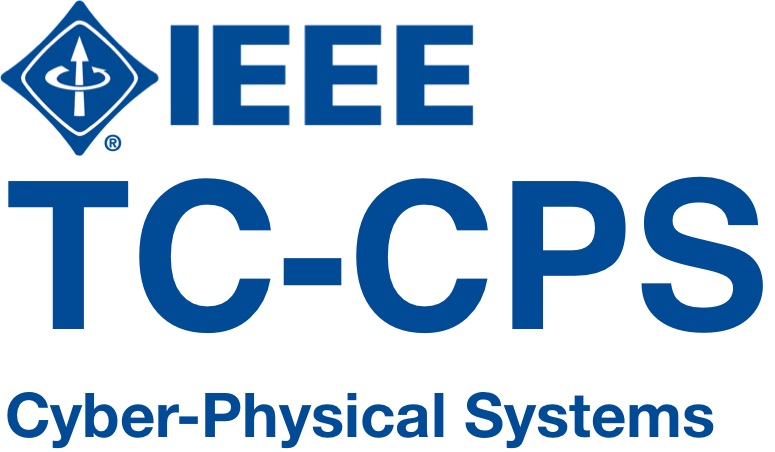IEEE ICESS 2019
The 15th IEEE International Conference on Embedded Software and Systems
Las Vegas Convention Center, Nevada, United States, June 2-3, 2019
Co-located with DAC 2019 (participants can access DAC Keynotes, Exhibits and Receptions)
http://lcs.ios.ac.cn/icess2019/
LATEST NEWS
The advancement of embedded software and systems, such as intelligent vehicles, industrial robots, wearable devices, and Internet-of-Things, has great societal and economic impacts. It is of utmost importance to ensure the safety, efficiency, and security of their design and implementation. The IEEE International Conference on Embedded Software and Systems (ICESS) is a global forum for researchers and developers from academia, industry, and government to present and discuss emerging ideas and trends in embedded software and systems. The conference has a broad scope covering the design, implementation, optimization, and validation of embedded software and systems in various domains, with recent focus on cyber-physical systems, Internet-of-Things, embedded security, and autonomous software systems.
ICESS 2019 is the 15th IEEE International Conference on Embedded Software and Systems. The conference will be collocated with the Design Automation Conference (DAC) 2019 in Las Vegas, Nevada, USA. Participants can access DAC exhibits, keynotes, and receptions. It is the next event of a series of highly successful international conferences, held in recent years as ICESS 2017 (Sydney, Australia), ICESS 2016 (Sichuan, China), ICESS 2015 (New York, USA), ICESS 2014 (Paris, France), ICESS 2013 (Sydney, Australia), ICESS 2012 (Liverpool, UK), ICESS 2011 (Changsha, China), and ICESS 2010 (Bradford, UK).
All accepted papers are expected to be included in IEEE Xplore and indexed by EI. Selected papers, after further revisions, will be considered for publication in a special issue of the Elsevier Journal of Systems Architecture. The submission Web page for ICESS 2019 is https://easychair.org/conferences/?conf=icess2019. ICESS 2019 uses a single-blind review process, i.e., the reviewers are anonymous, but the authors can put their names and affiliations on their submissions and the reviewers can see them.
ICESS 2019 will be sponsored by the IEEE, the IEEE Computer Society, the IEEE Technical Committee on Scalable Computing (TCSC), and the IEEE Technical Committee on Cyber-Physical Systems (TCCPS), pending approval.
- Yiran Chen, Duke University, USA
- Sanjit Seshia, University of California, Berkeley, USA
Title:Embedded Machine Learning Systems Designs: The Lessons We Learned
Biography: Yiran Chen received B.S and M.S. from Tsinghua University and Ph.D. from Purdue University in 2005. After five years in industry, he joined University of Pittsburgh in 2010 as Assistant Professor and then promoted to Associate Professor with tenure in 2014, held Bicentennial Alumni Faculty Fellow. He now is a tenured Associate Professor of the Department of Electrical and Computer Engineering at Duke University and serving as the director of NSF Industry–University Cooperative Research Center (IUCRC) for Alternative Sustainable and Intelligent Computing (ASIC) and co-director of Duke Center for Evolutionary Intelligence (CEI), focusing on the research of new memory and storage systems, machine learning and neuromorphic computing, and mobile computing systems. Dr. Chen has published one book and more than 350 technical publications and has been granted 93 US patents. He serves or served the associate editor of several IEEE and ACM transactions/journals and served on the technical and organization committees of more than 50 international conferences. He received 6 best paper awards and 12 best paper nominations from international conferences. He is the recipient of NSF CAREER award and ACM SIGDA outstanding new faculty award. He is the Fellow of IEEE and Distinguished Member of ACM, a distinguished lecturer of IEEE CEDA, and the recipient of the Humboldt Research Fellowship for Experienced Researchers.
Title: Algorithmic Improvisation for Dependable and Secure Autonomy
Biography: Sanjit A. Seshia is a Professor in the Department of Electrical Engineering and Computer Sciences at the University of California, Berkeley. He received an M.S. and Ph.D. in Computer Science from Carnegie Mellon University, and a B.Tech. in Computer Science and Engineering from the Indian Institute of Technology, Bombay. His research interests are in dependable computing and computational logic, with a current focus on applying automated formal methods to problems in cyber-physical systems, computer security, electronic design automation, and synthetic biology. His Ph.D. thesis work on the UCLID verifier and decision procedure helped pioneer the area of satisfiability modulo theories (SMT) and SMT-based verification. He is co-author of a widely-used textbook on embedded, cyber-physical systems and has led the development of technologies for cyber-physical systems education based on formal methods. His awards and honors include a Presidential Early Career Award for Scientists and Engineers (PECASE), an Alfred P. Sloan Research Fellowship, the Frederick Emmons Terman Award for contributions to electrical engineering and computer science education, the Donald O. Pederson Best Paper Award for the IEEE Transactions on CAD, and the School of Computer Science Distinguished Dissertation Award at Carnegie Mellon University. He is a Fellow of the IEEE.
We acknowledge support from the following.
 |
 |
 |
 |
Copyright © 2019, IEEE 2019